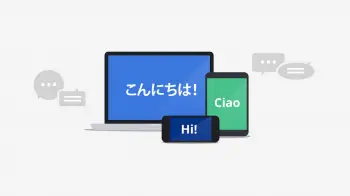
Google Translate adds 13 new languages in latest update, now supports 100+ languages total
Today, after launching 10 years ago, Google Translate now supports over 100+ languages which officially covers 99% of the human population. Not bad for a service that started out in 2006 with only support for 4 (English and Arabic, Chinese and Russian). The update, which is rolling out over the coming days, adds 13 new languages to the mix, covering more than 120 million people alone.
That brings the official tally to 103 languages and if you’re curious to see which ones have been added — along with some fun facts about each — check out the list down below.
- Amharic (Ethiopia) is the second most widely spoken Semitic language after Arabic
- Corsican (Island of Corsica, France) is closely related to Italian and was Napoleon’s first language
- Frisian (Netherlands and Germany) is the native language of over half the inhabitants of the Friesland province of the Netherlands
- Kyrgyz (Kyrgyzstan) is the language of the Epic of Manas, which is 20x longer than the Iliad and the Odyssey put together
- Hawaiian (Hawaii) has lent several words to the English language, such as ukulele and wiki
- Kurdish (Kurmanji) (Turkey, Iraq, Iran and Syria) is written with Latin letters while the others two varieties of Kurdish are written with Arabic script
- Luxembourgish (Luxembourg) completes the list of official EU languages Translate covers
- Samoan (Samoa and American Samoa) is written using only 14 letters
- Scots Gaelic (Scottish highlands, UK) was introduced by Irish settlers in the 4th century AD
- Shona (Zimbabwe) is the most widely spoken of the hundreds of languages in the Bantu family
- Sindhi (Pakistan and India) was the native language of Muhammad Ali Jinnah, the “Father of the Nation” of Pakistan
- Pashto (Afghanistan and Pakistan) is written in Perso-Arabic script with an additional 12 letters, for a total of 44
- Xhosa (South Africa) is the second most common native language in the country after Afrikaans and features three kinds of clicks, represented by the letters x, q and c
Google also reminds us that International Mother Language day is just around the corner (February 21st) and is looking for participants in the official Translate Community with help on either translating or validating existing translations of the languages you already speak. It’s just one way you can help millions of people communicate around the world by removing annoying language barriers.

